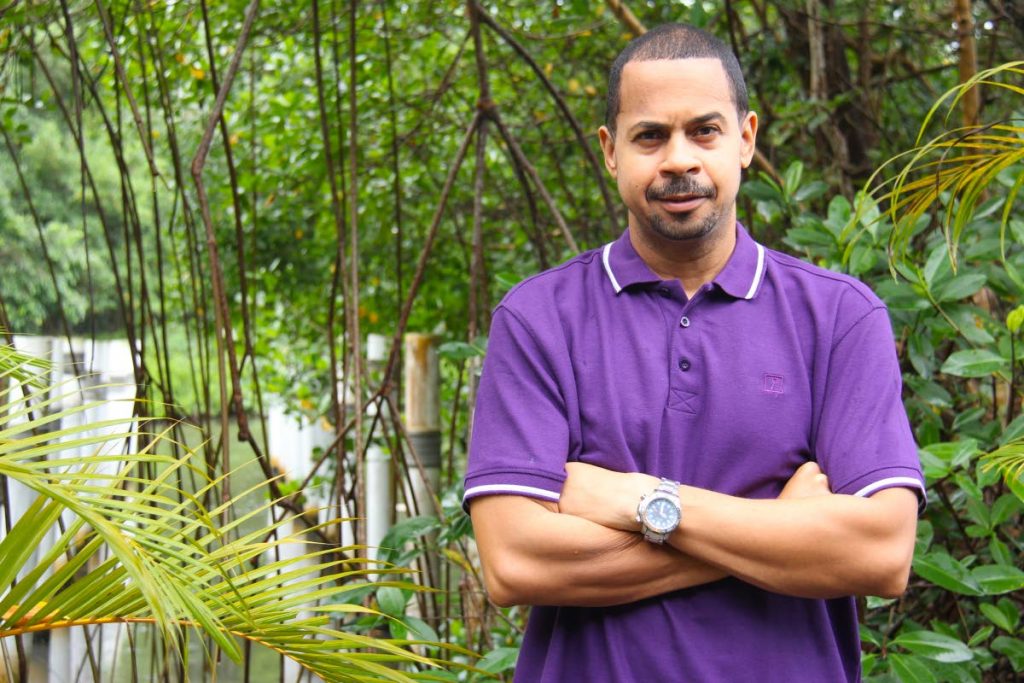Diversification is non-optional

PAOLO KERNAHAN
FORMER government minister Conrad Enill was recently quoted as having said economic diversification won’t extricate TT from its ongoing economic crisis “...because if you are not managing revenue and expenditure at this stage and borrowing $10 billion a year, then no matter how much income you get in other products that don’t have the same margins as energy, it will contribute, but it will not contribute at a rate to replace what you are looking at.”
Mr Enill is both right and wrong in his views on economic diversification. You’ll be hard-pressed to find anyone proposing that pepper sauce exports and Carnival will replace energy revenues.
The point of economic diversification isn’t to swap out oil and gas but to provide the foundations of a new type of economy. This new export-driven economy would leverage the inputs of several different industries.
It isn’t likely that revenues from a multitude of contributing business models would provide a major pipeline of foreign exchange. We are more likely to get a network of many smaller pipelines contributing to economic growth.
Small businesses and entrepreneurs in their thousands can tap into foreign markets all over the world with niche products. It’s a difficult concept for politicians to digest. How then do governments get their grubby hands on the money to perpetuate the drip-feed of state largess? After all, this is the very font from which ruling politics derives strength, contracts and employment for the party support base.
Mr Enill is correct in that diversification at this stage won’t fix the economy. Borrowing and wild taxation haven’t worked so far either, but then this Government’s fiscal measures are predicated on a future that’s certainly uncertain.
This Government has practically boasted that it has pinned this country’s hopes on a rebounding of energy fortunes. It’s a tragically misguided optimism that seems almost like recklessness in the face of global energy trends.
Had we planted the seeds of economic diversification more than 20 years ago, there would be no need for this conversation. TT wouldn’t be a one-note economy brought to its knees by the shifting sands of global energy markets.
I attended a conference exploring economic diversification more than 15 years ago. It’s a topic that has been in the wind for decades, but our five-year cycle of electoral politics and disdain for succession planning has made it an unattractive objective for political parties. Why fuss with a concept that has a distant horizon when you can simply build an overpass in time for the next round of vote buying?
Where Mr Enill hits the mark is on his assessment of the true nature of the existing business landscape. He points out that our businesses are invested in old-economy thinking rather than new-economy reality. This is quite true. The local private sector has always taken its cues from the revenues collected from the energy sector.
In our artificial economy, driven largely by government expenditure, businesses have evolved to merely collect the earnings of the state-employed workforce and snap up lucrative government contracts. That money is then passed through the alimentary canal of the larger businesses and then, as if out of a duck’s beneficent behind, is simply fed to the rest of the business community.
Mr Enill warns we can’t continue to plod along with the belief that God is ah Trini. We must turn our attention, he says, towards a knowledge-based economy. Now here’s where it would be a good idea for someone to check on this former government minister’s home to see if he is hogtied in a closet in his briefs and vest.
What Mr Enill is saying makes perfect sense, but it isn’t new is it? In fact, the term "knowledge-based" has been bounced around by previous governments. Nothing is ever done and politicians resort to the default position of oil, gas and state-funded mega projects like Sandals. Why? Apart from freeing the economically enslaved electorate, diversification requires hard work, research, study and a determination to try and try again. These are all qualities in as short a supply as conscientious politicians.
What Mr Enill and many of his ilk have missed, is that diversification is no longer a choice. TT’s heyday of oil and natural gas is over. We can either be buried along with it or attend the wake and move on.
Next week’s column will explore diversification options that can be activated in the short-term.


Comments
"Diversification is non-optional"